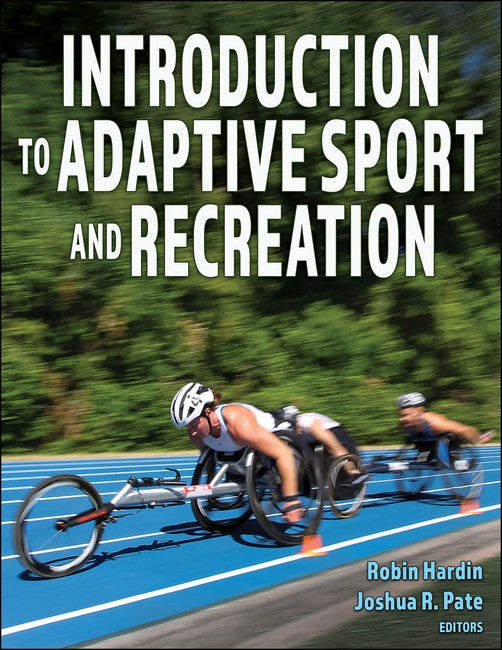Robin Hardin, PhD, is a professor in the sport management program in the department of kinesiology, recreation, and sport studies at the University of Tennessee. He earned his PhD in communications from the University of Tennessee, as well as a master's degree in communications and a master's degree in sport studies. He completed his bachelor's degree in communications at East Tennessee State University. His research interests lie primarily in the areas of sport governance, holistic care of athletes, and professional development of administrators. He is the former editor of Sport Management Education Journal (2018 through 2021) and has served on several other editorial boards. He is a member of the North American Society for Sport Management (NASSM) and the Society of Health and Physical Educators (SHAPE America), and is a member of the official statistics staff for football, men's basketball, and women's basketball at the University of Tennessee. He is a veteran of Operation Desert Storm and retired from the Tennessee National Guard. Joshua R. Pate, PhD, is the dean of the School of Business and Management and the program coordinator for sport management at Lees-McRae College. He earned his PhD in sport management from the University of Tennessee, as well as a master's degree in communications and a bachelor's degree in sport management. Pate's research is in disability, access, and inclusion through a sport lens. Pate has served on the editorial team of Sport Management Education Journal and serves on multiple editorial boards. He is a member of the North American Society for Sport Management (NASSM). He volunteered at the 2014 Sochi Paralympic Winter Games as one of 70 Paralympic News Service flash quotes reporters, with his work focused on wheelchair curling. Pate has a physical disability (cerebral palsy) and participates in recreational snow skiing, water skiing, hand cycling, and general exercise.
Request Academic Copy
Please copy the ISBN for submitting review copy form
Description
Chapter 1. Theoretical and Social Considerations of Adaptive Sport and Recreation Justin A. Haegele, PhD, and Cathy McKay, EdD What Is a Disability? Ableism Inclusion Versus Integration Theoretical Considerations Summary Chapter 2. Barriers and Opportunities for Access and Inclusion Kathleen McCarty, PhD; Laurin Bixby, PhD; and Winston Kennedy, PT, DPT, MPH, PhD Models of Disability Perception Understanding Barriers Attempts to Mitigate Disparities Social-Ecological Model Summary Chapter 3. Innovation in Disability Sport and Recreation David Legg, PhD, and Simon Darcy, PhD What Is Innovation? Examples of Innovation Approaches to Innovation How to Share an Innovation Summary Chapter 4. History and Development of the Paralympic Games Ian Brittain, PhD Early History of Disability Sport The Stoke Mandeville Games The Start of the Paralympic Games Development of the Paralympic Games Impact of the Paralympic Games Linking to the Olympic Movement How the Term Paralympic Has Changed Over Time Impairment Groups That Participate in the Paralympic Games Current Governance Structure for the Paralympic Movement Aims of the Paralympic Games Beyond Sport Summary Chapter 5. Legal Aspects of Disability Sport and Recreation Anita Moorman, JD History of the Disability Rights Movement International Legal and Policy Efforts on Disability Rights United States Legal Framework for Disability Rights Impact of Disability Rights Laws on Athletic Participation Impact of Disability Rights Laws on Sports Venues Summary Chapter 6. Media and Disability Sport Erin Pearson, MA, and Laura Misener, PhD Introduction Media Representation of Disability Media Representation of Disability Sport and the Paralympic Games Competing Perspectives of Disability Sports Coverage The Future of Disability Sports Coverage Summary Chapter 7. Elite Adaptive Sport Jeff Ward, PhD, and Mary Hums, PhD Major Games Featuring Disability Sport Current Issues in Disability Sport Competition Summary Chapter 8. Sport for Athletes With Intellectual Impairment Abby Fines, PhD, and Christina Mehrtens, PhD Special Olympics Versus Paralympics Contextualizing Intellectual Disability Within Sport Intellectual Disability and Special Olympics Intellectual Impairment and the Paralympics Summary Chapter 9. Para-Athlete Development Darda Sales, PhD, PLY, and Laura Misener, PhD Long-Term Development Model American Development Model Foundation, Talent, Elite, Mastery Model Application of the Long-Term Development Model to Para-Athletes Considerations for the Development of Para-Athletes What's Next? Summary Chapter 10. Adaptive Sports and Recreation for Military Populations Jasmine Townsend, PhD, CTRS, FDRT, CARSS-II, and Derek Whaley, MS, CTRS, CARSS-I Common Health Conditions Among Service Members and Veterans Veteran-Focused Treatment Options Adaptive Sports and Recreation for Military Service Members Characteristics of Community-Based Adaptive Sports and Recreation Programs Benefits of Adaptive Sports for Military Populations Summary Chapter 11. Adaptive Youth Sports Anthony G. Delli Paoli, PhD, and Javier Robles, JD Adaptive Youth Sports Settings Adaptive Youth Sports Participation Summary Chapter 12. Funding Disability Sport Michael Cottingham, PhD; Tiao Hu, MS; Don Lee, PhD; and Oluwaferanmi Okanlami, MD Costs and Expenses Related to Disability Sport Sources of Funding Collegiate Programs Funding Personnel: Disability Sport Promoters Future Trends in Disability Sport Funding Summary Case Study: University of Alabama Adapted Athletics Margaret Stran, PhD, and Brent Hardin, PhD Starting the Program Sports Organization People Facilities Funding Sport for All Outreach Change Advice Summary

